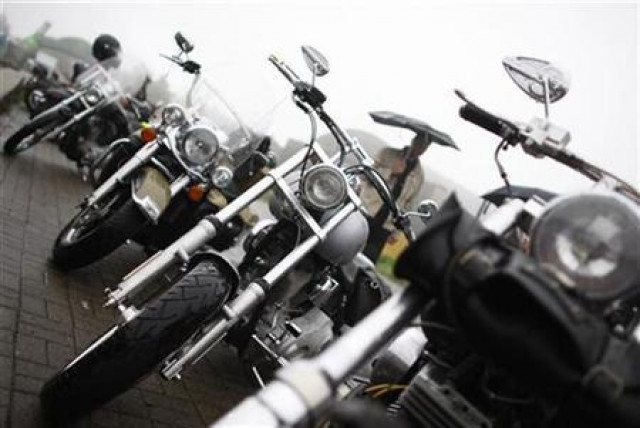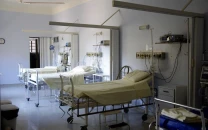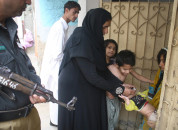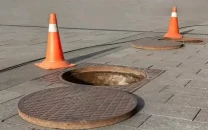Alternative angle: Tahir Mehdi relives the Motorcycle Diaries
The common man only wants basic necessities, he says.

The common man only wants basic necessities, he says.
“People will always give precedence to basic amenities like roads, water and natural gas because they affect their lives the most,” said journalist Tahir Mehdi speaking at a seminar on Tuesday at the Centre for Public Policy and Governance, Forman Christian College.
In his quest for the connection between the common man and electoral politics and the issues that plagued them, Mehdi had set out on a motorbike journey in the weeks leading up to the elections, covering almost 1,800 km from Lahore to Garhi Khuda Bakhsh.
Mehdi said that he had decided to steer clear of highways and major cities and to focus on rural areas. The journey began from Lahore in April and ended in Garhi Khuda Baksh in May. For three weeks, he rode his motorbike into the heart of the country and produced 20 news reports titled ‘Motorcycle Diaries’ for a news website (Dawn.com).
“Everyone I spoke to on my journey related politics to infrastructure of one type or the other,” he said. The common man interpreted politics in terms of the absence or presence of infrastructures, largely things that affected households directly.

Roads were something, he felt, people longed for. “Roads really do matter,” he said. Even small ones, he said, enhanced their ability to earn livelihood. “Living in cities, commuting on big roads we fail to realise how important they are,” he said, “Just try commuting on an unpaved road every day.”
Availability of potable water was another major issue, he said. Mehdi said he saw how the lack of safe water affected people. “The majority of villages I went through did not have tap water” he said. While tap water was important for many reasons, the most important one the villagers felt was the fact that it saved them time. “Women and children in these villages spend four to five hours daily carrying water to their homes,” he said.
Mehdi believes that political parties have lost the capacity to connect with people. “Political parties do not exist in this society…there is no evidence of [their] existence,” he said. The common man, he claimed was aware of their interests.
Mehdi videotaped interviews with people from as far as the Thal Desert. Most people he spoke to were politically aware and pragmatic in their attitudes towards political parties. “They don’t think politicians switching parties is a bad thing,” he said, “Political association did not matter as long as politicians delivered.” But then they also carefully scrutinised whether the candidates were honest and sincere.
“For people to abandon the politics of galli-naala (based on infrastructure alone), local elections must be brought to the fore,” said Mehdi, “People can relate to them better than governments at the national and provincial levels.”
Talking to The Express Tribune, Mehdi said he had never felt unsafe during his journey. “The nights were troublesome because I would have to find a place to write and sleep,” he said. Despite the tiring reporting and travelling, Mehdi says, documenting the Motorcycle Diaries was a memorable experience. “I did not go to ‘cover’ the elections as such,” he said, “It was an attempt to understand the people, their issues and why they vote.”
Published in The Express Tribune, June 19th, 2013.



















COMMENTS
Comments are moderated and generally will be posted if they are on-topic and not abusive.
For more information, please see our Comments FAQ